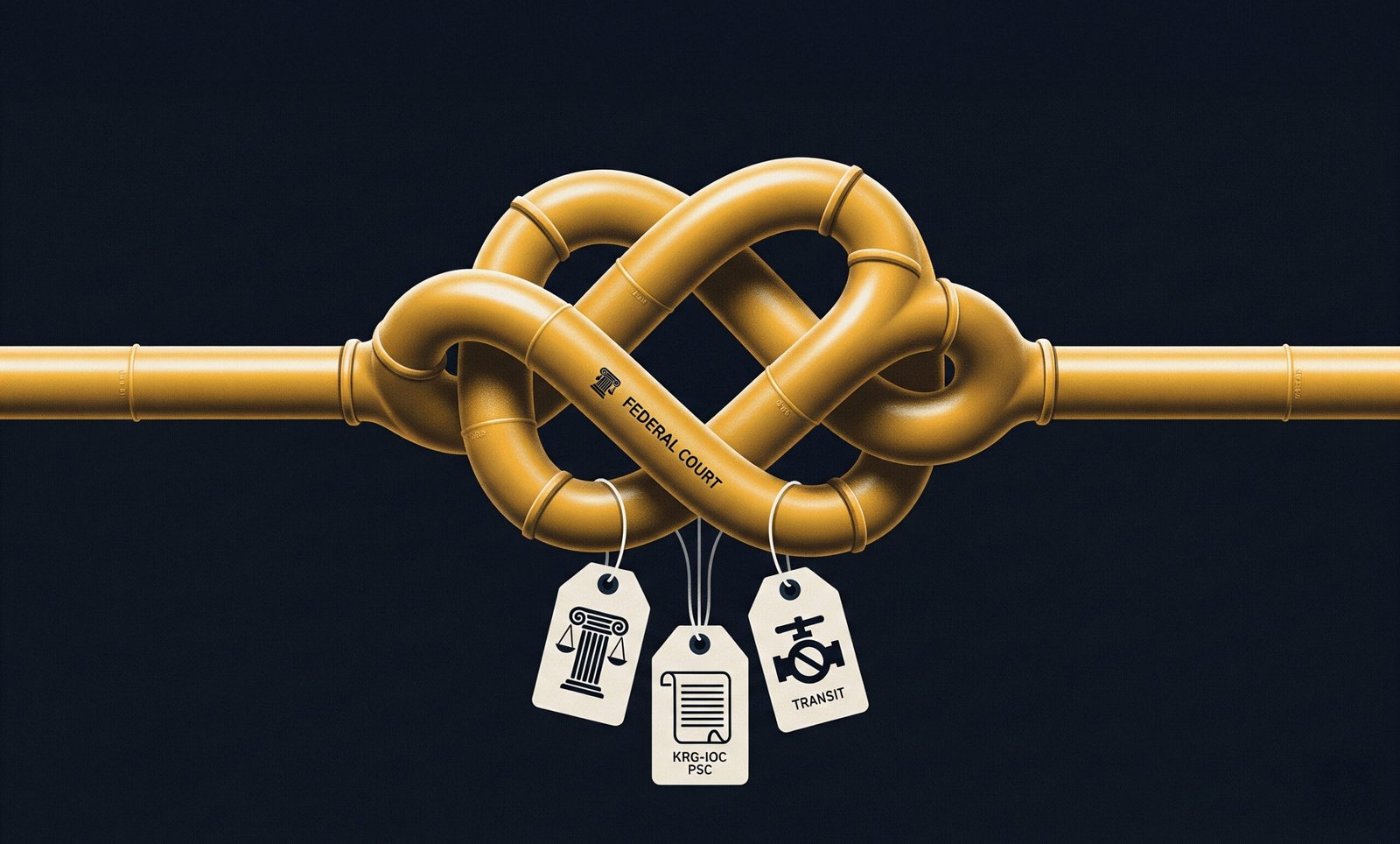Why the KRG Oil Negotiations Are Unparalleled in the World

The negotiations to resume KRG oil exports have seen little tangible progress despite months of talks and sustained U.S. pressure. Iraqi officials have repeatedly promised that exports would restart “any day” since February, yet the prospects remain slim. The underlying reason is that the KRG oil file is sui generis—a case with no precedent in global energy disputes.
Context: We have covered the technical, geopolitical, local and economic dimensions of the export standoff in previous reports. But another factor behind the deadlock lies in its multilateral legal and institutional complexity. Overlapping jurisdictions, conflicting legal positions, and misaligned incentives among the key stakeholders have created a negotiation environment with no clear framework to resolve disputes. More fundamentally, the KRG case stands alone in international energy law: there is no true analogue where sub-national contracts collide with federal court rulings, arbitration awards, and third-country transit all at once.
Details: The foundation of this unique dispute lies in an extraordinary separation of contractual authority from export control. The KRG signed production-sharing contracts with international oil companies (IOCs) without Baghdad’s approval, creating what appeared to be legitimate regional commercial relationships. However, in 2023, Iraq won a decisive international arbitration case in Paris against Turkey, which confirmed that only the federal government has the legal right to manage Iraq’s oil exports via the Ceyhan pipeline.
This victory gave Baghdad control over the export route, but crucially, it still has no direct contractual relationship or legal obligation with the IOCs operating under KRG-signed contracts. The federal government now holds the keys to monetization while remaining legally divorced from the production agreements that make that oil available. This creates an unprecedented mismatch: physical control without legal obligation on one side, and contractual rights without export access on the other.
The second layer of complexity lies in jurisdiction and disclosure. The IOCs refuse to hand over their KRG contracts for Baghdad’s review, fearing legal consequences after Iraq’s Federal Supreme Court ruled the Kurdish oil law unconstitutional. This refusal to disclose contract terms reflects legitimate concerns about legal exposure, but it creates an information asymmetry that Baghdad finds unacceptable.
KRG Oil Export Negotiations
An Interactive Network of Competing Interests
Simultaneously, the companies insist that any deal to restart exports must be in writing with Baghdad, include federal payment guarantees, and stipulate that disputes be settled in international arbitration rather than Iraqi courts. They want federal guarantees while maintaining the international legal framework they originally contracted under, essentially asking Baghdad to underwrite agreements it has never seen and cannot review.
Baghdad categorically rejects this demand, arguing that since the contracts were signed with the KRG—and the KRG is constitutionally part of Iraq—the companies must accept Iraqi jurisdiction for any federal guarantees. The federal government refuses to countersign agreements that would subject Iraqi sovereign decisions to international arbitration, particularly for contracts it never approved in the first place.
Adding to the uniqueness, some of the same IOCs negotiating with Baghdad over their KRG contracts are simultaneously signing new deals directly with the federal government. For example, HKN Energy—a long-time KRG contractor—recently agreed to develop a federally controlled oilfield in the disputed territories south of Kirkuk, even while pressing Baghdad to recognize its existing KRG contract. This dual positioning underscores the contradictory incentives at play: companies hedge between regional and federal authorities, reinforcing the structural imbalance that makes compromise elusive.
While the pipeline crosses Turkey, giving Ankara a legitimate voice in the resumption process, this geographic reality adds another layer to an already unprecedented internal dispute. Turkey’s cooperation is essential for any solution, yet its requirements must be negotiated separately from the fundamental Iraqi constitutional and legal conflicts, creating parallel tracks that must somehow converge.
The core deadlock remains internal: a federal government that controls the export pipeline but refuses to underwrite sub-national contracts it never signed; IOCs seeking federal guarantees without disclosing their PSCs; and a jurisdictional tug-of-war between international arbitration and Iraqi courts. This combination—sub-national-only contracts, federal control of the export chokepoint, competing legal forums, and dual-track contracting by the same IOCs—makes the KRG oil dispute truly sui generis and without parallel anywhere else in the world.









